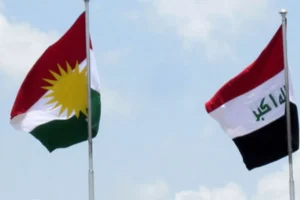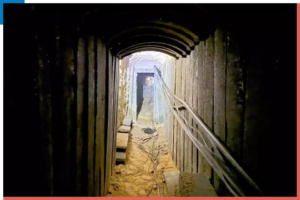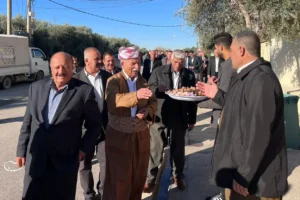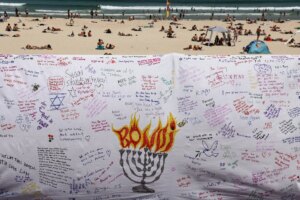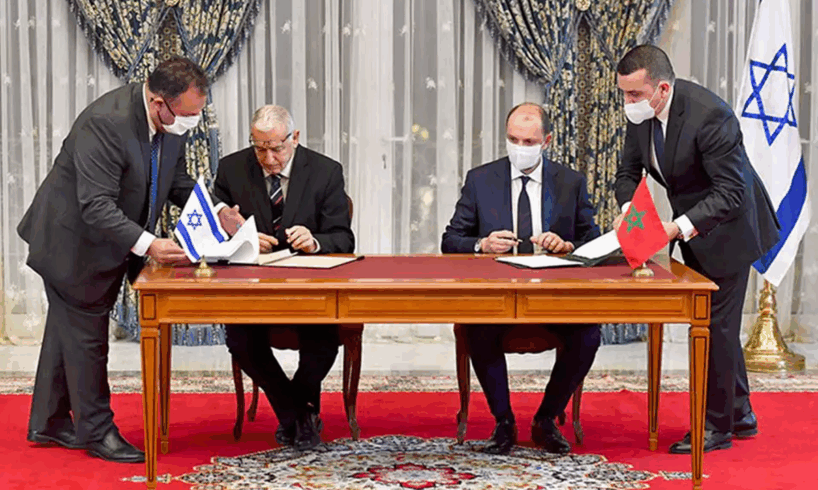
The relationships between Israel, Morocco, and the United Arab Emirates are developing positively, with a focus on bilateral relations rather than multilateral ones, as seen in the 2022 Negev Forum. Each country demonstrates its own strength.
The United Arab Emirates openly supports Israel from a media perspective. Following the attack at Ramot Junction in Jerusalem and the October 7 attack, the country sharply condemned terrorism. Simultaneously, the Emirates continued publishing the activities of their embassy, and the young and active Emirati ambassador to Israel, Mohamed Al Khaja, has not changed his policy since 2021.
Deputy Foreign Minister Sharren Haskel’s choice to travel to the United Arab Emirates to mark five years of the accords also carries significant symbolism.
Cooperation that remains conditional
While economic ties have strengthened, there is a goal to strengthen security ties. However, this cooperation remains conditional. The United Arab Emirates warned that annexation of parts of Judea and Samaria would be “crossing a red line” and would severely damage the accords.
Still, relations remain solid thanks to the wise leadership of the United Arab Emirates and the strong leadership of Netanyahu and his personal commitment to the Abraham Accords. Since 2020, the Israeli prime minister has demonstrated a good balance that has prevented the accords from deviating from their essence, even when dealing with an important priority for Israeli sovereignty.
Regarding Bahrain, Ambassador Eitan Na’eh spared no effort to improve cooperation. His counterpart in Israel, Khaled Al-Jalahma (who completed his role in April), also helped develop cooperation with the startup nation. The relations with Bahrain are therefore in diplomatic revival. The Bahraini foreign minister received in August the credentials of Israel’s new ambassador – a clear sign of diplomatic rapprochement. This happened two years after the October 7 attack, when several enemies wanted the end of the accords or the permanent return of the ambassador in Bahrain.
The Abraham Accords marked a historic milestone, paving the way for renewed diplomatic relations between the two sister nations.
Morocco was the first country in the region to sign a defense agreement with Israel, making the kingdom a leading partner, after the US. With the military initiatives in 2025, one can count the “African Lion” exercises led by the US and the approval of a bilateral maritime transport agreement.
Morocco also purchased artillery systems from Israel (36 Elbit Atmos 2000) as a primary weapons supplier. There is an intention to deepen economic and strategic ties.
Morocco-Israel relations strengthened thanks to the bold vision of His Majesty King Mohammed VI, who focuses on human connections. Both diplomatic and non-diplomatic officials strongly condemned the terrorist attacks carried out against Israeli civilians. Foreign Minister Nasser Bourita spoke out against terrorism during his visit to Israel as part of the Negev Forum, while showing empathy and solidarity toward Israeli families.
Therefore, what various “international experts” said about October 7, the war, and the demonstrations cannot affect the foundations of the accords. The war with Iran sent very positive signals also regarding Morocco. Morocco was actually the only country in the region that stood alongside Israel and the US when it decided not to join solidarity statements in favor of Iran. As Trump said, to achieve peace, one must prepare for war. Peace through strength, from deterrence to prevention.
Strengths of peace
Peace cannot involve discomfort or challenges. This is healthy logic. Peace has no challenge, no weakness, and no threat. Peace offers only strengths. There are several opportunities to restore the accords to their greatness.
First, to upgrade the diplomatic status between Morocco and Israel and establish embassies.
Second, November will mark a jubilee for the “Green March” (the march toward southern Morocco in 1975) and five years of the Abraham Accords. This is the “golden month” for advancing relations by defining Polisario as a terrorist organization.
Third, all Abraham Accords countries must reject Hamas and Iran’s proxies. Fourth, there should be agreement on organizing the next Negev Forum in Morocco’s desert.
This forum can become an organization parallel to the UN, based on the desire to fight antisemitism, terrorism, and extremism, and will be able to absorb additional countries.
Finally, public awareness must be the key in the next battle against antisemitism, through people-to-people relations and educational programs.
Chaimae Bouazzaoui was the first Moroccan diplomat to arrive in Israel to establish the coordination and liaison office, after the renewal of relations between the countries in 2020.
The post Historic chance to strengthen regional partnership appeared first on www.israelhayom.com.
